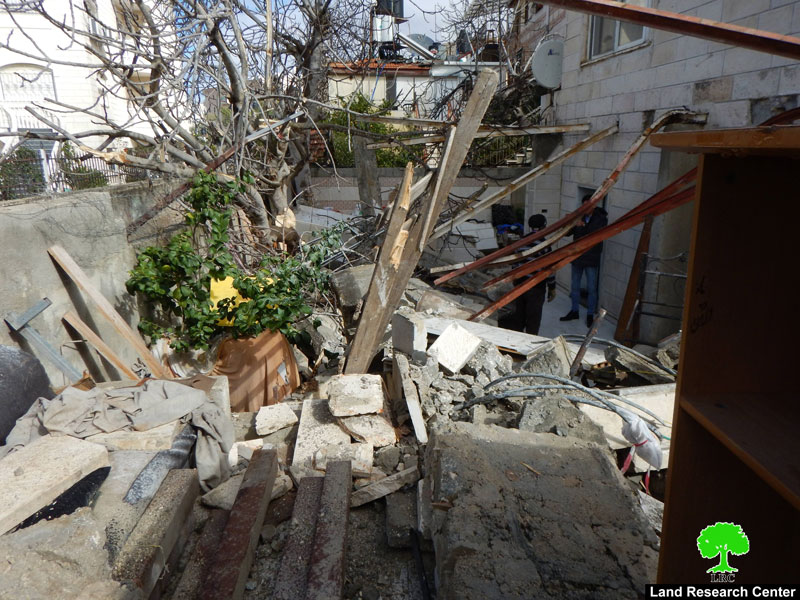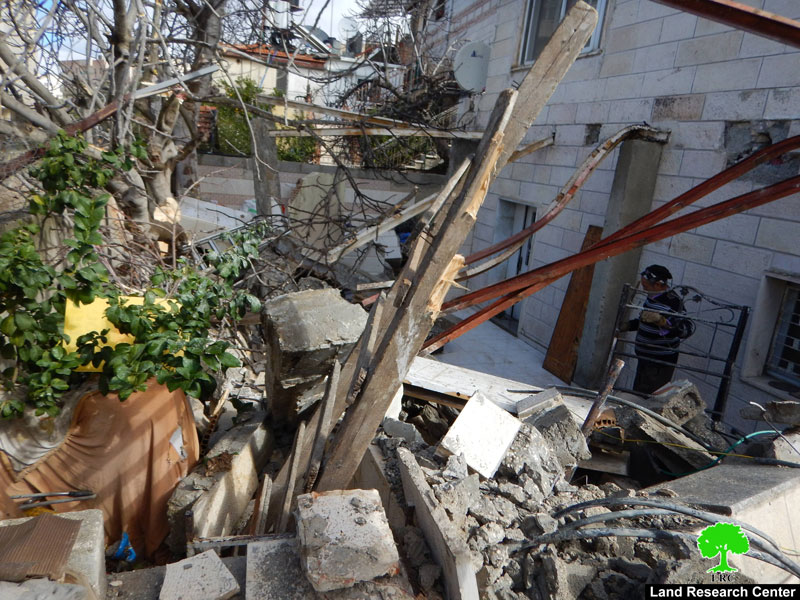2018-01-17
Israel Municipality demolishes parts of a residence in Beit Hanina
On Wednesday, January 17, 2018, the dozers of the Israeli occupation municipality in Jerusalem demolished parts of a residence founded in Beit Hanina town on the claim of unlicensed construction.
Reportedly, the 50m2 demolished part of the house is owned by female owner Mudalala Halaiqa, who is the head of a five member family including two children. Notably, the demolished part composed of a bedroom and a guest room.
Citizen Loay, the owner's son, told Land Research Center the following:
" We live in a 70m2 house. In 2005, we annexed two room with a total area of 50m2 to it for the sake of expanding. The occupation's municipality issued a demolition order on the room three days from the demolition date, which is January 14, 2018. The order stated the demolition must be carried out by the owner.
Next day, we were surprised by a massive police force and dozers around our house. Later the dozers brought down the structure after the police evicted us"


Land Research Center LRC sees that demolitions contradict with all the International conventions and Humanitarian laws including:
Article 17 of the (1948) Universal Declaration of Human Rights stating: “Everyone has the right to own property alone as well as in association with others. No one shall be arbitrarily deprived of his property.”
Section ‹G› of article 23 of the (1907) The Hague Conventions asserting: “In addition to the prohibitions provided by special Conventions, it is especially forbidden to destroy or seize the enemy's property, unless such destruction or seizure be imperatively demanded by the necessities of war.”
Article 53 of the Geneva Fourth Convention (1948) declaring: “Any destruction by the Occupying Power of real or personal property belonging individually or collectively to private persons, or to the State, or to other public authorities, or to social or cooperative organizations, is prohibited, except where such destruction is rendered absolutely necessary by military operations.”
Section 1, Article 11 of the International Covenant on Economic, Social and Cultural Rights (1966): “The States Parties to the present Covenant recognize the right of everyone to an adequate standard of living for himself and his family, including adequate food, clothing and housing, and to the continuous improvement of living conditions.
This case study is part of Kan'aan Project

